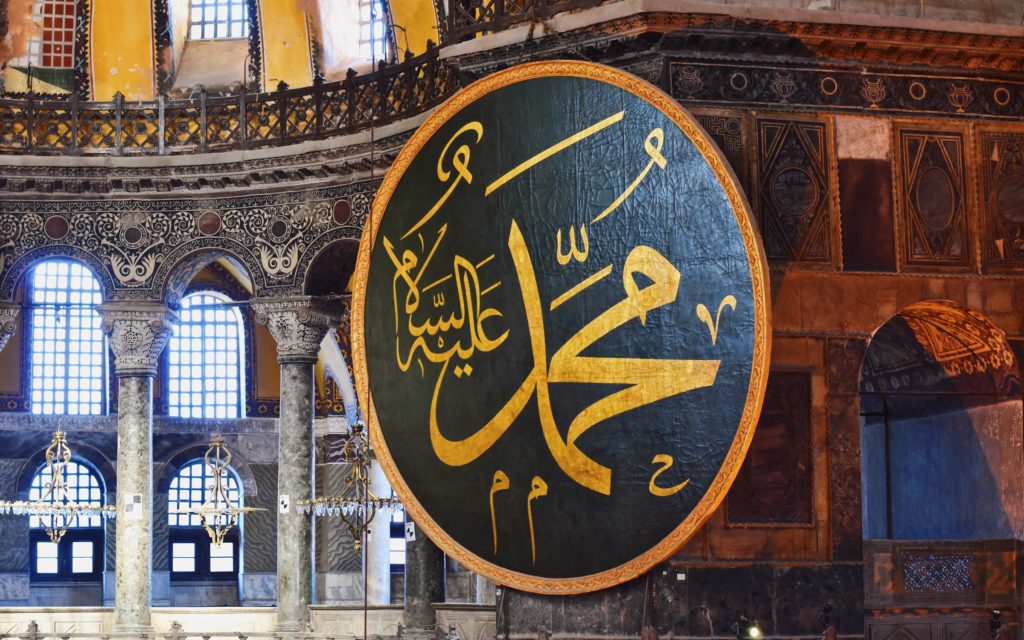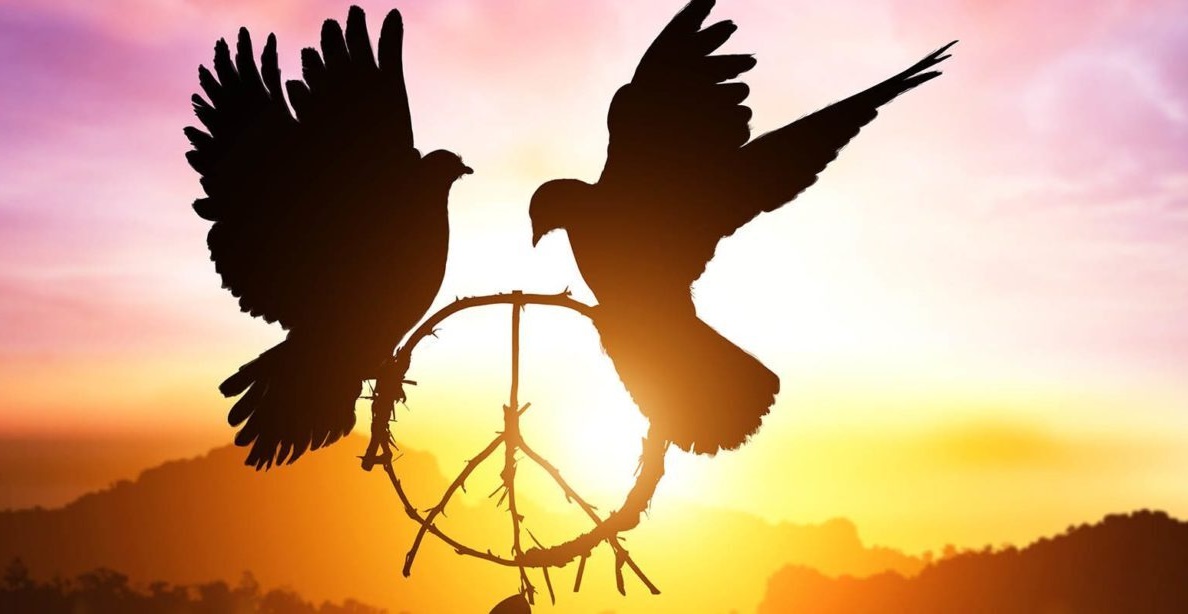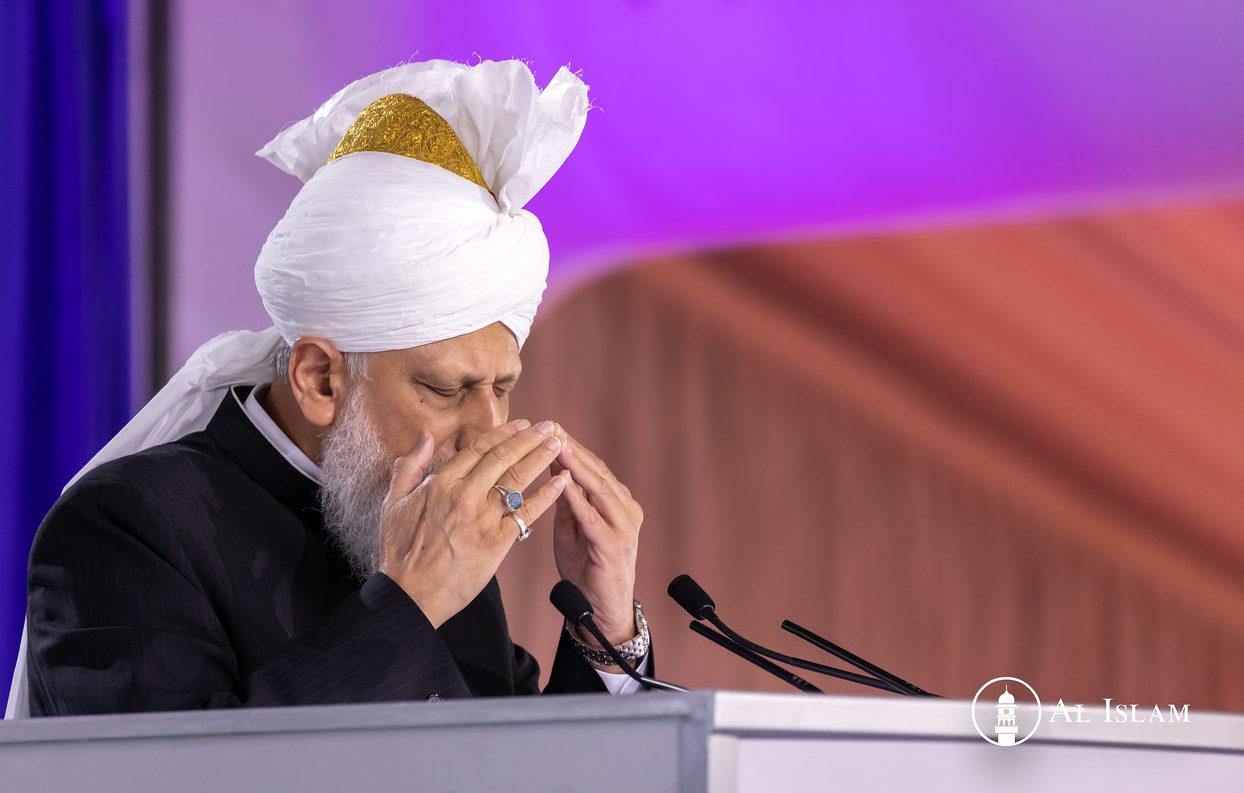An account of the noble character of the Holy Prophetsa of Islam through opinions and views of revered personalities of India.
AMIR AZIZ AHMEDI, KOLKATA
MAY 25, 2021
Many great and enlightened souls including rationalists, poets, scientists, intellectuals, and holy men have unequivocally expressed their appreciation for the Holy Prophetsa of Islam. For the current review, I limit my scope to a few handpicked great men belonging to our beloved nation India. Let us review these observations and expand our knowledge.
Annie Besant writes in her book The Life and Teachings of Muhammad:
It is impossible for anyone who studies the life and character of the great prophet of Arabia, who knows how he taught and how he lived, to feel anything but reverence for that mighty Prophet, one of the great messengers of the Supreme. And although in what I now put to you I shall say things which may be familiar to many, yet I myself feel, whenever I re-read them, a new way of admiration, a new of reverence to that mighty Arabian teacher.[1]
The great poetess of India, Sarojini Naidu states regarding the religion brought by the Holy Prophetsa of Islam:
It [Islam] was the first religion that preached and practised democracy, for, in the mosque when [from] the minaret [the call to prayer] is sounded and the worshippers are gathered together, the democracy of Islam is embodied five times a day when the peasant and the king kneel side by side and proclaim, “God alone is great”. I have been struck over and over again by this indivisible unity of Islam that makes a man instinctively a brother.[2]
Mahatma Gandhi, the Father of the Nation, had such admiration for the Holy Prophetsa of Islam that after reading Prophet’s biography he said, “I was sorry there was not more for me to read of that great life”[3]. He always advised Muslims to follow the peaceful path of the Prophetsa. How he viewed the person of the Holy Prophetsa is evident from his following words:
I wanted to know the best of the life of one who holds today undisputed sway over the hearts of millions of mankind… I became more than ever convinced that it was not the sword that won a place for Islam in those days in the scheme of life. It was the rigid simplicity, the utter self-effacement of the Prophet, the scrupulous regard for pledges, his intense devotion to his friends and followers, his intrepidity, his fearlessness, his absolute trust in God and his own mission. These and not the sword carried everything before them and surmounted every obstacle.[4]
K S Ramakrishna Rao, an Indian professor of philosophy, in his book, Muhammad: The Prophet of Islam describes the Holy Prophetsa as the “perfect model for human life”. He says:
The personality of Muhammad, it is most difficult to get into the whole truth of it. Only a glimpse of it I can catch. What a dramatic succession of picturesque scenes? There is Muhammad, the Prophet. There is Muhammad, the Warrior; Muhammad, the Businessman; Muhammad, the Statesman; Muhammad, the Orator; Muhammad, the Reformer; Muhammad, the Refuge of Orphans; Muhammad, the protector of Slaves; Muhammad, the emancipator of women; Muhammad, the Judge; Muhammad, the Saint. All in all these magnificent roles, in all these departments of human activities, he is alike a hero.[5]
Late Shri Diwan Chand Sharma, a member of the First Lok Sabha, observes:
Muhammad was the soul of kindness, and his influence was felt and never forgotten by those around him.[6]
Now let us ponder over the sayings, odes and accolades heaped upon the Holy Prophetsa Islam by revered saints and holy men of the latter days. We find in The Gospel of Sri Ramakrishna:
Toward the end of 1866 he began to practise the disciplines of Islam. Under the direction of his Mussalman guru he abandoned himself to his new sadhana. He dressed as a Mussalman and repeated the name of Allah.
His prayers took the form of the Islamic devotions. He forgot the Hindu gods and goddesses — even Kali — and gave up visiting the temples. He took up his residence outside the temple precincts. After three days he saw the vision of a radiant figure, perhaps Mohammed. This figure gently approached him and finally lost himself in Sri Ramakrishna. Thus he realized the Mussalman God. Thence he passed into communion with Brahman. The mighty river of Islam also led him back to the Ocean of the Absolute.[7]
Paramahansa Yogananda, the founder of the worldwide spiritual organization Self-Realization Fellowship, was an Indian Hindu monk and yogi, who is revered by millions. In one of his books, he wrote an ode in praise of the Holy Prophetsa titled, Come to me as Mohammed. He writes:
O Mohammed, inspired Prophet of God! thy light-house, the Koran, directs endangered soul ships around the lethal rocks of sin to safety in the Ultimate Harbor.
Thy soldiers sing of spiritual victory as they hasten chivalrously to rescue Dame Knowledge from the tyrant, Ignorance.
Thou warnest thy flock not to follow mirages in deserts of sense pleasures, but to browse in rich pastures of inner joy.
He continues by mentioning some of the teachings of the Holy Prophetsa explaining how they contribute to our moral and spiritual upliftment. He says:
Thou hast instituted the dawn-to-dusk fast during the month of Ramadan, that Spirit be attracted to the purified temple of man and offer him nectar and ambrosia.
Thy followers observe thy ban against liquors and opiates, which impair the mind and prevent divine perceptions. Thou pointest out that man’s desire for intoxicants is a misguided craving for the life-transforming rejuvenator made in the Namaz wine press of prayer.[8]
Guru Baba Nanak, the holiest figure in Sikhism, was an ardent admirer of the Holy Prophetsa of Islam. He has highly praised Prophet Muhammadsa on many occasions. He says:
It is difficult to be called a Muslim; if one is truly a Muslim, then he may be called one. First, let him savor the religion of the Prophet as sweet; then, let his pride of his possessions be scraped away. Becoming a true Muslim, a disciple of the faith of Mohammed, let him put aside the delusion of death and life. As he submits to God’s Will, and surrenders to the Creator, he is rid of selfishness and conceit. And when, O Nanak, he is merciful to all beings, only then shall he be called a Muslim.[9]
Similarly, Guru Arjan quotes Guru Nanak as saying:
One who realizes the Prophet attains heaven. Azraa-eel, the Messenger of Death, does not cast him into hell.[10]
Sathya Sai Baba, the famous Indian guru and the founder of the Sathya Sai Organisation has also spoken exhaustively about Islam and the Holy Prophetsa of Islam. He observes:
Mohammad, who sought to establish the primacy of the One Formless Absolute had a large share of persecution, defamation, and privation….Those who seek to know God must steel themselves to bear insult, injury and torture, with a smile.[11]
On another occasion, he said:
Truth should not be confined to speech. It must express itself in action. Only the one who is truthful in word and deed can be esteemed as a genuine human being, according to Prophet Mohammed.[12]
Similarly, he says:
Prophet Mohammed, likewise, told his disciples before his passing that the money he owed to a camel driver should be paid before his end came. The discharging of one’s debts is regarded as a pious obligation for every Bharatiya.[13]
Explaining how the Holy Prophetsa remained determined in the face of fierce opposition from his people, Sathya Sai says:
Hazrath Muhammad announced the message of God that he had heard to the townsmen of Mecca. At that time, people did not give heed to the Divine Declarations. They forced him to leave the place. But, Hazrath Muhammad knew that truth will win and God will prevail. He knew that the insult and injury were only for the body; the Aathma can never be hurt.
The Ramzan month is set apart for the holy task of bringing into memory and practice the teachings that Hazrath Muhammad conveyed and attaining that stage of unity and purity which is truly Divine.[14]
The fact that all these personalities, who are revered by millions and occupy a high position in the hearts of those who know them, were influenced by the noble character of Prophet Muhammadsa and that they could not remain without admitting his greatness and acknowledging his loftiness undeniably proves that the Holy Prophetsa was an embodiment of perfect human attributes. May the world come to realize this truth and give him the respect that he truly deserves.
REFERENCES
[1] The Life and Teachings of Muhammad, p. 3
[2] From the lecture The Ideals of Islam by Sarojini Naidu, delivered at the Lawley Hall, on December 19, 1917 under the auspices of the Young Men’s Muslim Association, Madras. Speeches and Writings of Sarojini Naidu p. 169
[3] Young India September 11, 1924, The Collected Works of Mahatma Gandhi v. 29 p. 133
[4] Young India September 11, 1924, The Collected Works of Mahatma Gandhi v. 29 p. 133
[5] Muhammad: The Prophet of Islam p. 20
[6] The Prophets of the East by Diwan Chand Sharma p. 96
[7] The Gospel of Sri Ramakrishna p. 46
[8] Whispers From Eternity p. 108-109
[9] Siri Guru Granth Sahib p. 141, English translation by Singh Sahib Sant Singh Khalsa
[10] Siri Guru Granth Sahib p. 1084, English translation by Singh Sahib Sant Singh Khalsa
[11] Name: Never-Failing Fountain, Sathya Sai Speaks, v. 8, May 16, 1968
[12] Secure God’s Love, Sathya Sai Speaks, v. 17, December 25, 1984
[13] Love: Sacrifice: Unity, Sathya Sai Speaks, v. 23, December 25, 1990
[14] Unity and Purity: Message of Ramzan, Sathya Sai Speaks v. 16, July 12, 1983












2 Comments
Kandasamy Puvirajan · June 22, 2021 at 7:11 am
What do you deem to be the best explanation of Surah Al Fatihah? Pls share if you have one.
Tq
Mudassir Ahmad Chaudhary · April 5, 2022 at 10:08 am
Amazing and outstanding article. However, I think the information you convey must in graphical form and try to reduce text as much as possible and convey information in graphical image form (just personal opinion, ignore if you don’t like it)